The Warrior Galloglass Surnames of Ireland
Have you heard of the "Galloglass"? Maybe one of your Irish surnames came from this fearsome band of mercenaries?
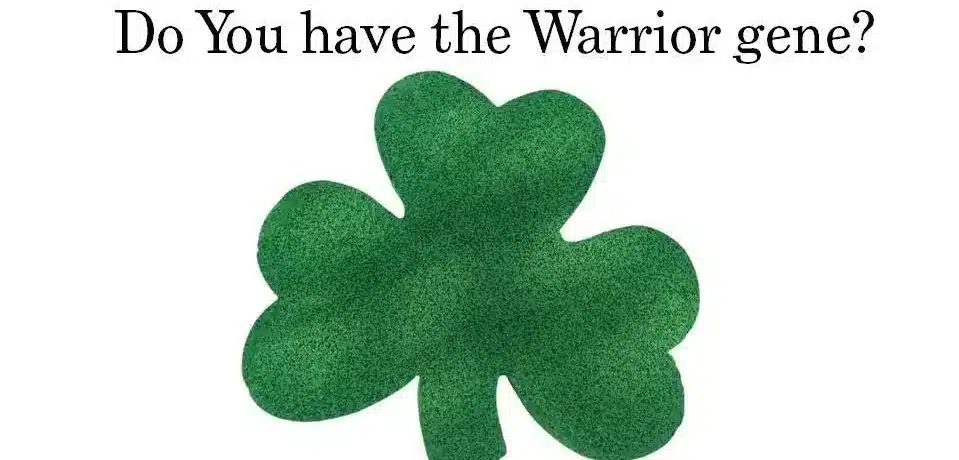
Many Irish surnames derive from a group of warriors who arrived in Ireland as mercenaries from the 13th century onwards. They were called the “galloglass”. A few weeks back, I received the following mail from Brenda Mills – one of our regular readers:
I would love to know more about the McCoy’s and where they came from. My grandmother would only say the McCoy’s were from Ireland. When I was in Ireland, I was in Blarney Woollen Mills and there was an author selling his book. He told me that the McCoy’s were from Ulster. I have not been able to prove that one way or the other. Any info would help.
Well, Brenda, I could tell you that the surname McCoy comes from the Irish “Mac Aodha” and leave it at that. However, there is a much bigger story behind the McCoys in Ulster – and a number of similar distinct surnames found around Ireland. You see, the McCoys of Ulster were a “Galloglass” family. If you enjoy a little Shakespeare from time to time, you may have come across the following words in his play “Macbeth”:
“The merciless Macdonald, Worthy to be a rebel, for to that
The multiplying villainies of nature
Do swarm upon him, from the
Western isles Of kerns and gallowglasses is supplied.
The term “Galloglass” mentioned comes from the Irish “Gallóglaigh” which literally translates as “young foreign warrior”. This is a name that the Irish gave to those Norse-Scottish mercenaries who appeared on Irish shores for the first time in the 1200s. They came from the part of Scotland that was once the Kingdom of the Dal Riada – a kingdom that spread between the north of Ireland and the west of Scotland.
As Scots, they were Gaelic and shared a common culture and language with the Irish. But since they had intermarried with the Norse settlers in Scotland, the Irish called them Gall Gaeil (“foreign Gaels”). Many of the families in this area had become effective warriors, developing superior fighting methods and technology to that of the Irish.
The Arrival of the Norse-Gaels in Ireland.
Over in Ireland the Irish Chieftains were facing a new and deadly threat. The Normans arrived in Ireland in the late 1100s, and after a difficult start, established a series of strongholds across the country into the 1200s.
The Irish chieftains faced a number of problems in fighting off this Norman threat to their Irish lands: First, the Normans easily beat the Irish forces in direct and open combat with their superior fighting methods and technology. Second, Irish society was made up of a series of alliances that could unravel at any time. An ally could suddenly join the Normans for a particular fight to gain the upper hand over a neighbour. The Gallowglass warriors of the western isles of Scotland provided a solution to both of these problems. The first recorded of Gallowglass arrival in Ireland was in 1259, when the King of Connacht was provided with one hundred and sixty of these soldiers. They were provided with land and received supplies from the local lordships.
They carried a two-handed axe and a broadsword – and wore chainmail with an iron helmet – all of which were new to the native Irish. This equipment, as well as their fighting approach, made them more suitable for direct battle with the Normans (the native Irish typically made more use of their knowledge of local woods and bogs to ambush and skirmish). The local chiefs also felt comfortable with the loyalty of the Gallowglass as they were less affected by local feuds and promises.
So, how did some of the Gallowglass surnames become so prominent in Ireland? Well, some of these Gallowglass families were on the losing side of the Scottish wars of independence and this meant the complete loss of their lands. When they were offered alternative lands in Ireland in return for service, many decided to migrate as a full family group. The first of these clans were the MacSweeneys, who settled in Donegal. These were followed by MacDonnells/McDonalds in Antrim and the MacCabes in Cavan.
By 1512, there were about 60 Galloglass groups around the country under the Irish lords. They may have started out as Norse-Scots mercenary groups – but settled over time and intermarried with the native Irish. The term Gallowglass came to mean more a “fighting unit” that consisted of men of many different backgrounds. These Gallowglasses were an important part of the Irish fighting force right up to the Battle of Kinsale in 1601.
The Fighting Norse-Scots-Irish Surnames.
As I mentioned previously, whole Galloglass families left Scotland to settle in Ireland. So, although some of these surnames originated in Scotland, they are now considered Irish and include the following surnames:
McCabe, McCallion/McCallan, McColl/McColley, McCrory/McRory/Rogers, Gallogly/English, McGirr/Short, McGreal , Sheehy, McSorley and McSweeney/McSwiney.
Like to add your Galloglass surname to our list? Just signup for your free weekly Letter from Ireland by clicking here.
When these surnames are found in Scotland today, it’s often due to later Irish catholic emigration from Ireland to Scotland after the Irish famine.
However, a larger number of Galloglass families either went to Ireland on a seasonal basis – and later returned to Scotland – or only parts of clans moved fully to Ireland. As a result, there are a number of Gallowglass surnames that could be considered both Irish and Scottish – and are still found in both Ireland and Scotland today. These include:
McAllister/McAlister, McAteer/McIntyre, McAuley/ McAulay/ McCauley, Campbell, McClean/ McLean, McCoy/McKay, McCollum/ McCallum, McDowell /McDougall (some became Doyle), McDonnell /McDonald, McFadden/McFayden and McNeill.
Remember that these Gallowglass surnames arrived in Ireland from Scotland before the reformation. However, from the 17th century on – some of these surnames also arrived in Ulster as planted settlers – now typically Presbyterian. So, Brenda – it seems like your friend in Blarney Woolen Mills was right – the McCoys in Ireland are typically from Ulster and most arrived in Ireland as warriors with fighting on their mind!
That’s it for this week. As always, do leave a comment below if you want to share a story, ask a question about your Irish surname or just to say hello!
Slán for now – Mike : )

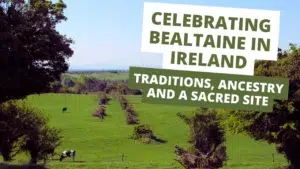
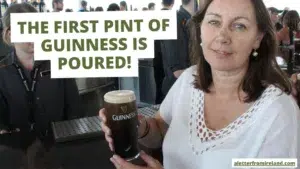
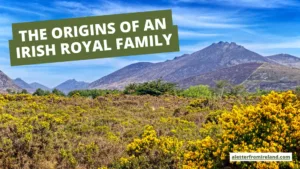
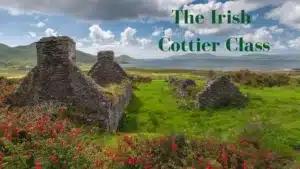
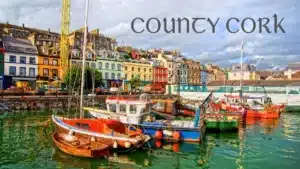
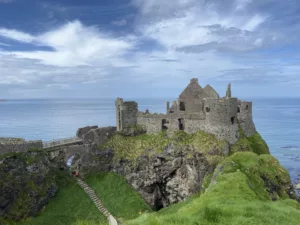
Only Plus Members can comment - Join Now
If you already have an account sign in here.